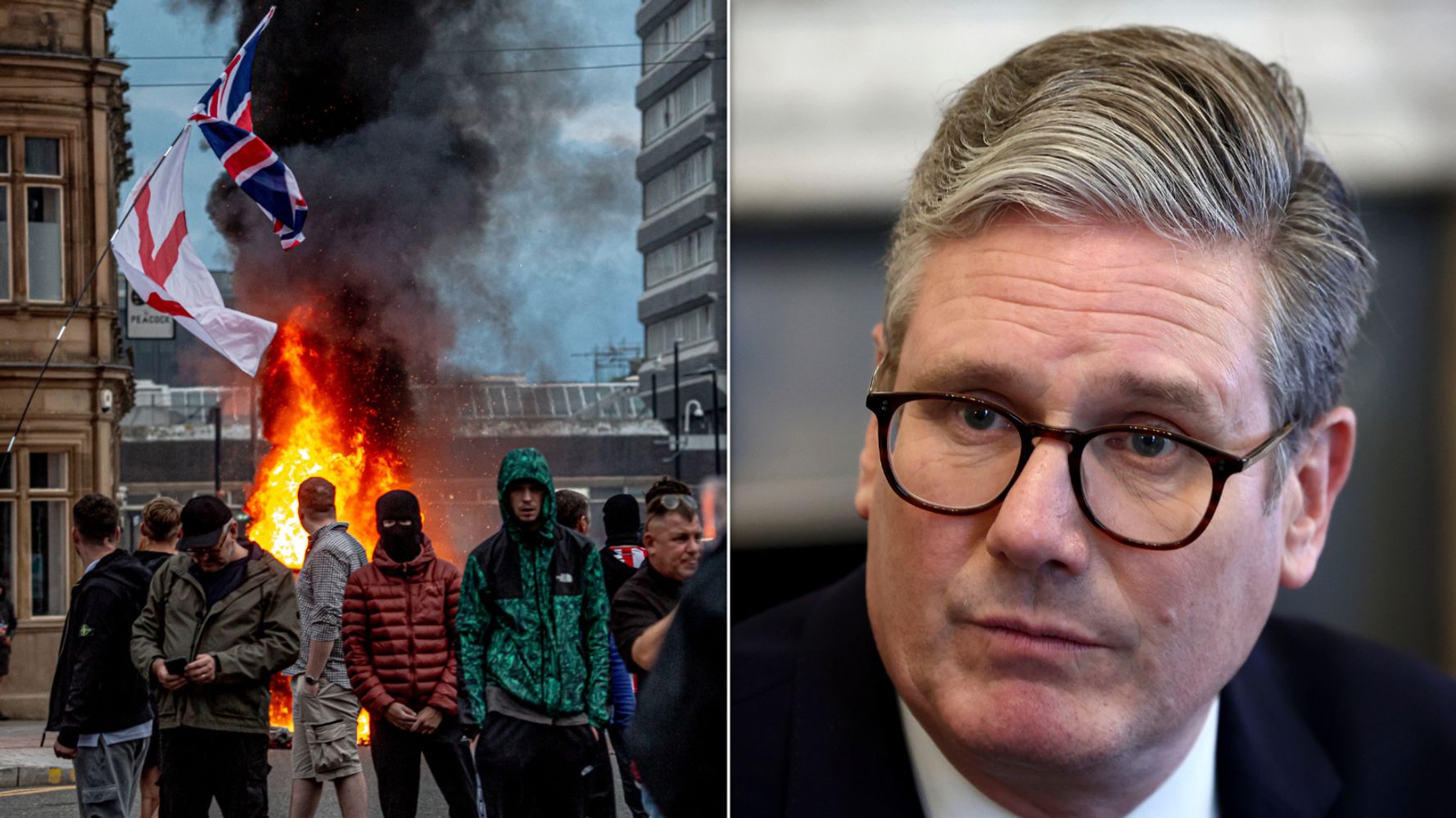The Upsurge of Far-Right Violence in the UK: A Multifaceted Crisis
The recent wave of far-right violence in the United Kingdom has sparked widespread concern and raised a multitude of pressing questions. From the labeling of the unrest to the role of social media and the capacity of the justice system, the government and the public are grappling with the complexities of the situation.
1. Domestic Terrorism: A Contested Label
The escalation of violence has prompted calls for the unrest to be classified as “domestic terrorism.” The definition of terrorism, according to the Criminal Prosecution Service (CPS), encompasses actions intended to influence the government or advance an ideological cause through serious violence, property damage, or endangerment.
Former police chief Neil Basu argues that the recent riots meet this definition, citing their racially motivated intent to intimidate. However, counter-terrorism policing officials maintain that the acts do not necessarily fulfill all the criteria.
2. Islamophobia: Division and Debate
Amidst the violence, there have been allegations of Islamophobia, prompting calls for the government to criminalize the act. Some MPs believe the rhetoric used by politicians has directly contributed to the rise in hateful language and violence toward the Muslim community.
However, opponents of such a move argue that it would limit criticism or discussion of religion. The debate highlights the complexities surrounding the definition and treatment of Islamophobia.
3. Two-Tier Policing: Fact or Fiction?
Allegations of “two-tier policing” have surfaced, claiming that police treat white individuals more severely than Black and Brown people in similar situations. This claim has been rejected by the government and police chiefs, who maintain that all rioters will face the full force of the law.
Nonetheless, the accusation has gained traction among far-right groups, who portray it as part of a wider conspiracy against white people. Experts dismiss this narrative as a dangerous incitement of hate.
4. Police Shortages and Resource Strain
The government has vowed to address the unrest with a “standing army” of 6,000 specialist police officers. However, there are concerns that the UK may not have sufficient officers to effectively manage the crisis, particularly given the decentralized nature of far-right groups.
The lack of transparency and communication between organizers and the police further complicates the situation. Authorities emphasize the importance of peaceful protests and compliance with regulations.
5. Capacity of the Justice System
The UK’s justice system is already facing significant strain, with prisons nearing capacity. The influx of arrests could potentially exacerbate the situation, raising concerns about the system’s ability to handle the volume of cases.
The government has announced plans to increase prison capacity, but experts believe the sheer number of arrests may still pose a challenge. Former counter-terrorism head Neil Basu suggests the threat may diminish as suspects are apprehended and jailed.
6. Social Media’s Role and Accountability
Social media has played a pivotal role in galvanizing the riots, with far-right accounts spreading misinformation about the Southport stabbings. Prime Minister Starmer has condemned these platforms for failing to police hateful content.
Technology secretary Peter Kyle has met with major social media companies to discuss ways to mitigate the spread of fake news and inciteful rhetoric. The Online Safety Act is expected to introduce duties for these platforms, but its implementation will take time.
7. Parliament’s Response and Public Demand
The Prime Minister has rejected calls to recall Parliament from its summer recess to debate the crisis. Instead, his focus is on addressing the disorder and ensuring swift criminal sanctions.
However, some MPs and anti-racism organizations believe Parliament should reconvene to discuss solutions and ensure the protection of all communities. A poll indicates that only a small minority of the public supports the riots or sympathizes with their views.
8. Roots of Far-Right Sentiment
There is ongoing debate about the factors that have contributed to the surge in far-right sentiment. Some blame the Conservatives’ anti-migrant rhetoric, while others criticize Starmer’s perceived “dithering” in response to the unrest.
Experts emphasize the need for a candid assessment of the underlying causes, including the potential role of false narratives and divisive language in fueling the violence.
9. What Lies Ahead?
Intelligence suggests that further riots are likely. Tell MAMA, an organization monitoring anti-Muslim attacks, has alerted counter-terrorism police to potential targets for upcoming demonstrations. The government is committed to stopping the spread of disorder and holding those responsible accountable.
The ongoing unrest has exposed deep divisions within British society and highlighted the urgent need for a multifaceted response that addresses both the immediate crisis and the underlying causes that have fueled it.



